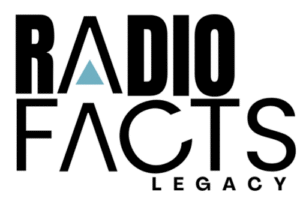Radio Facts: It’s what you call privilege folks.. This racist dickhead was a programmer at 19.When Glenn Beck assumed morning-show duties at KZFM in Corpus Christi, Texas, in 1983, the zoo model was ascendant. It was the year Scott Shannon moved to New York to found Z100, where Shannon’s “Z Morning Zoo” made the station No. 1 in the market within three months of its birth.
Closer to Beck’s new home, John Land er had just launched what would be a long-running and heavily syndicated morning zoo on Houston’s KKBQ.Like dozens of stations launching generic zoos around the country, Beck’s first morning show was titled simply “The Morning Zoo.” It wasn’t a playbook zoo, as it lacked an ensemble, but it had a zoo spirit. It was fast-paced and featured skits and fake characters voiced by Beck. Beck’s main cartoon character was named Clydie Clyde, a Muppet-voiced alter ego who sounds like the love child of Yoda and Kermit the Frog.
Today the descendants of Clyde live on without names. Beck lapses into voices to imitate anyone he doesn’t like, while going boggly-eyed and waving his hand s around like he’s slipping on a banana peel. (Clyde was based on the most widely imitated such character at the time, “Mr.
Leonard” from Shannon’s New York Zoo team.)”Beck’s Corpus show was just him, Clydie Clyde and the news reader,” says Tod Tucker, who hosted the slot following Beck’s at KZFM. “He was extremely talented and he knew it. At first we didn’t get along because he was so arrogant, but we became friends.
He always talked about going to New York City and making it big. That was his dream.”He didn’t advertise it, but at 19 Beck was the youngest morning zoo host and program director in the country. “At the time I thought he was in his mid- to late 20s,” says Barry Kaye, former program director at KITE, a rival station. “He was an incredible talent to be working at that level at that age.””Glenn was a talented young preppy kid with a bit of an attitude,” remembers Meryl Uranga, a program and music director at KZFM. “I had never smelled clove cigarettes before I met him. Hanging out with Beck was also the first time I ever saw certain drugs.
He partied a lot.”
Along with giving Beck the space to develop creatively, Corpus Christi offered a crash course in the business side of radio. As a manager and programmer, Beck was responsible for tailoring KZFM's appeal to Corpus Christi's complicated market, a diverse population split between Hispanics, whites, blacks and active military. And there was enormous pressure to get the formula right.
At the time, KZFM was engaged in a heated ratings war with its rival, KITE.In the studio, the early '80s were the age of the zoo. In the back office, they were the age of federal deregulation. In 1982, the FCC began removing constraints on radio ownership across a range of areas, from public-service content quotas to filing requirements.
Among the most consequential changes was the revocation of an "anti-trafficking" rule that barred investors from quick flipping stations for profit. The result was a radio bubble fueled by a newly feverish market for properties. To pick just one example from Beck's career, his future employer WKCI in Connecticut sold for $6 million in 1983.
Three years later it went for $30 million. Between 1982 and 1990, almost half of the country's stations would change hand s at least once.This new quick-sell culture affected radio pros in numerous ways. As owners came and went, experimenting with staff and formulas, turnover rates increased. The result was a caste of radio gypsies like Beck, who wore signs that declared, "Have mouth, will travel." Increasingly, DJs did not know where they'd be at the end of the next Arbitron ratings quarter. [read the whole story]


